AMD Ryzen 9 9950X3D: Performance Reviewed
Just a few months after the AMD Ryzen 7 9800X3D graced us with its presence, the Ryzen 9 9950X3D introduces its 3D V-Cache technology to a formidable 16-core, 32-thread gaming processor. This beast of a chip is designed to keep pace with the most powerful graphics cards, such as the Nvidia RTX 5090 or future releases. However, with a steep $699 price tag and a 170W power budget, this processor is primarily suited for those constructing ultra-high-end gaming PCs. For most users, the Ryzen 7 9800X3D remains a more sensible choice.
Purchasing Guide
The AMD Ryzen 9 9950X3D will be available starting March 12, with a suggested retail price of $699. Keep in mind that AMD's processor prices can fluctuate based on market demand.
AMD Ryzen 9 9950X3D – Photos
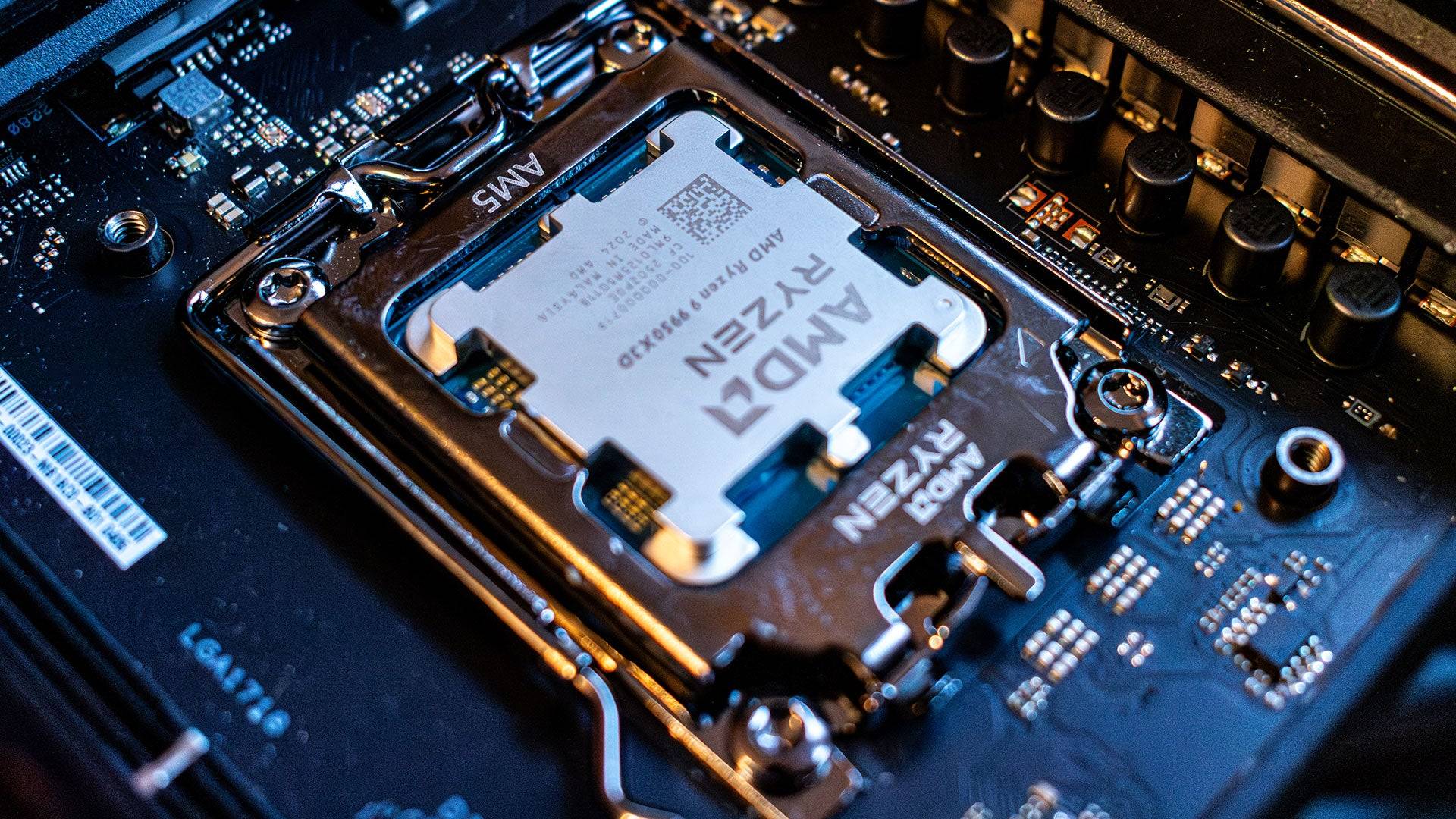
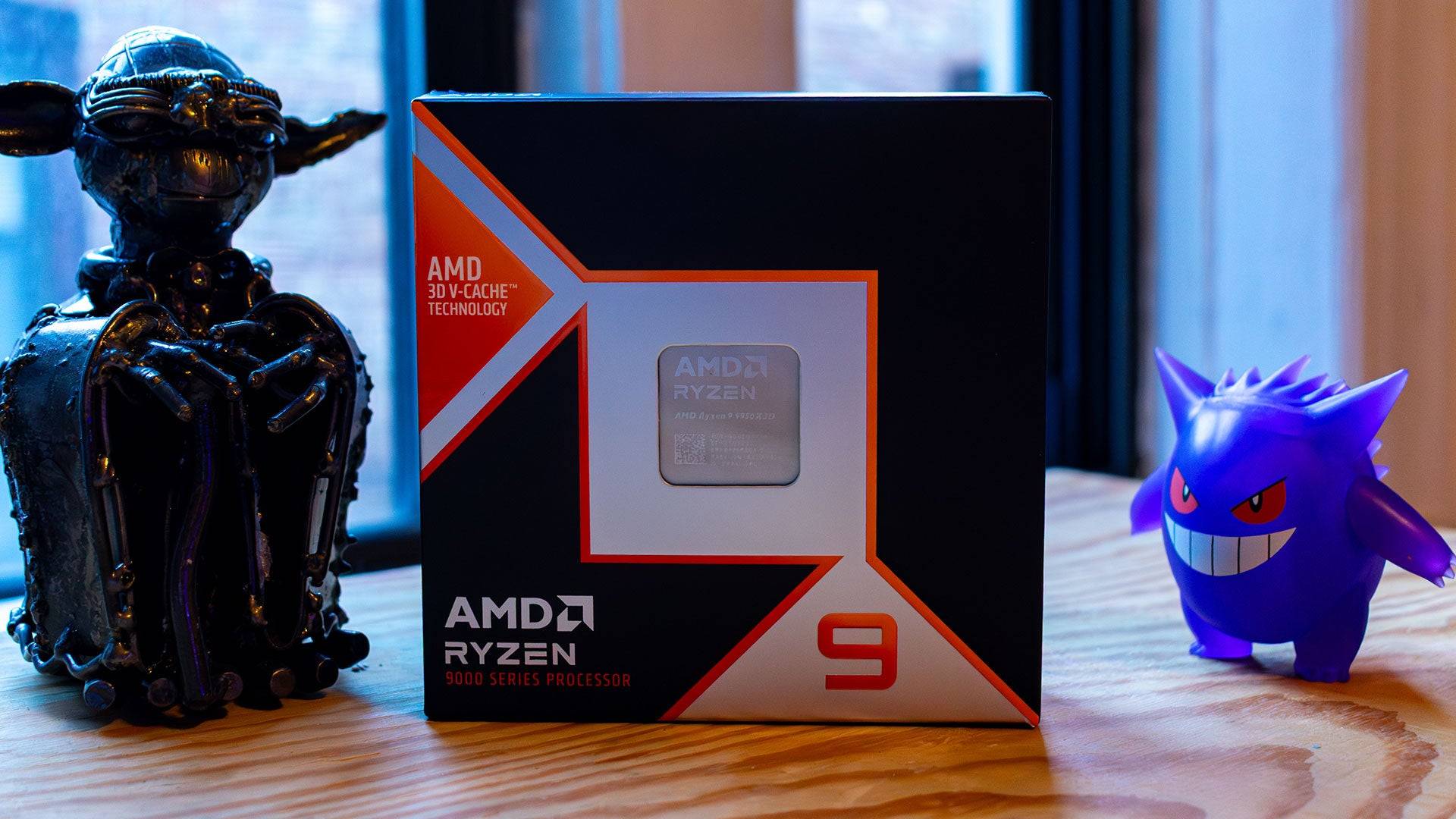 3 Images
3 Images
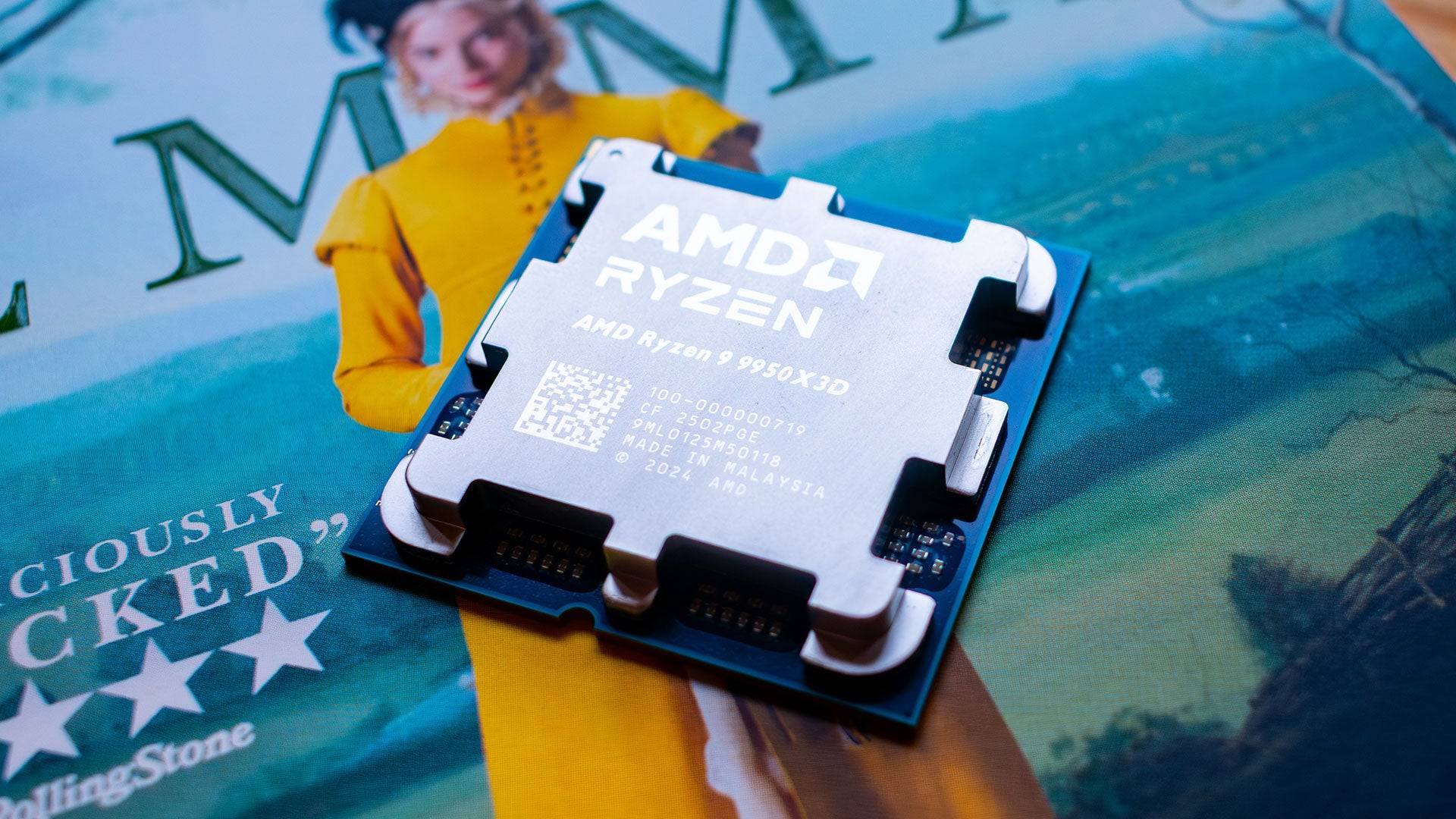
Specs and Features
The AMD Ryzen 9 9950X3D combines the Zen 5 cores of the standard 9950X with the enhanced 2nd-generation 3D V-Cache technology seen in the Ryzen 7 9800X3D. This combination ensures top-tier multi-core performance alongside superior gaming capabilities due to an expanded cache.
A significant change from its predecessor, the Ryzen 9 7950X3D, is the placement of the 3D V-Cache directly beneath the CPU cores. This alteration not only improves thermal performance by allowing heat to dissipate more effectively through the Integrated Heat Spreader (IHS) but also reduces data latency by minimizing the distance data must travel. The 9950X3D boasts an impressive 144MB of combined L2 and L3 cache, matching the previous generation's offering but significantly outpacing non-X3D processors.
Both the Ryzen 9 9950X and 9950X3D share a 170W TDP, with the original 9950X having a higher potential PPT. Testing showed both processors peaking at 200W, though the 9950X3D maintained a lower peak temperature of 79°C, thanks to a different cooling setup.
The 9950X3D is compatible with any AM5 AMD motherboard, with AMD committing to support this socket until at least 2027, ensuring long-term platform viability.
AMD Ryzen 9 9950X3D – Benchmarks
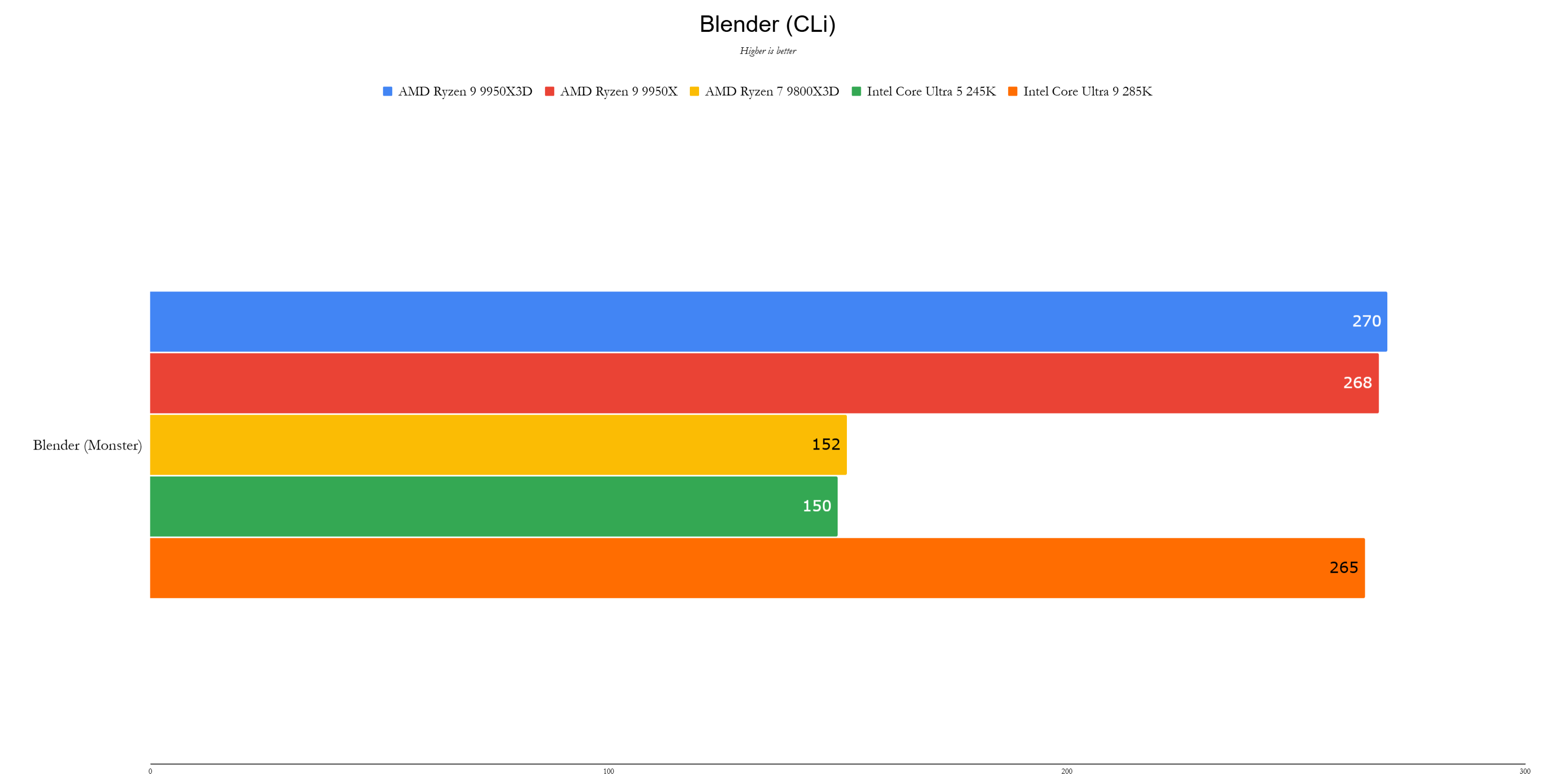
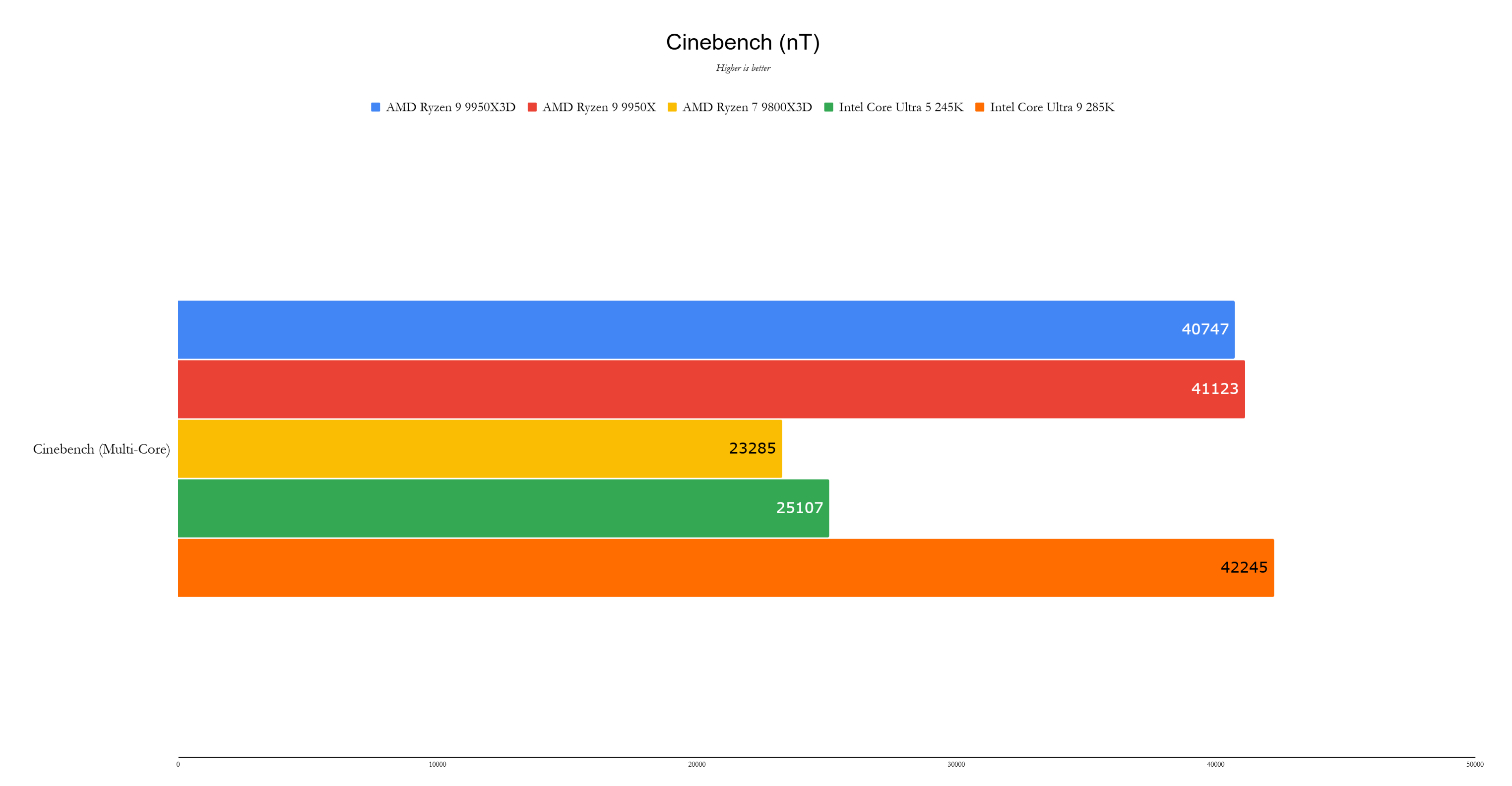 11 Images
11 Images
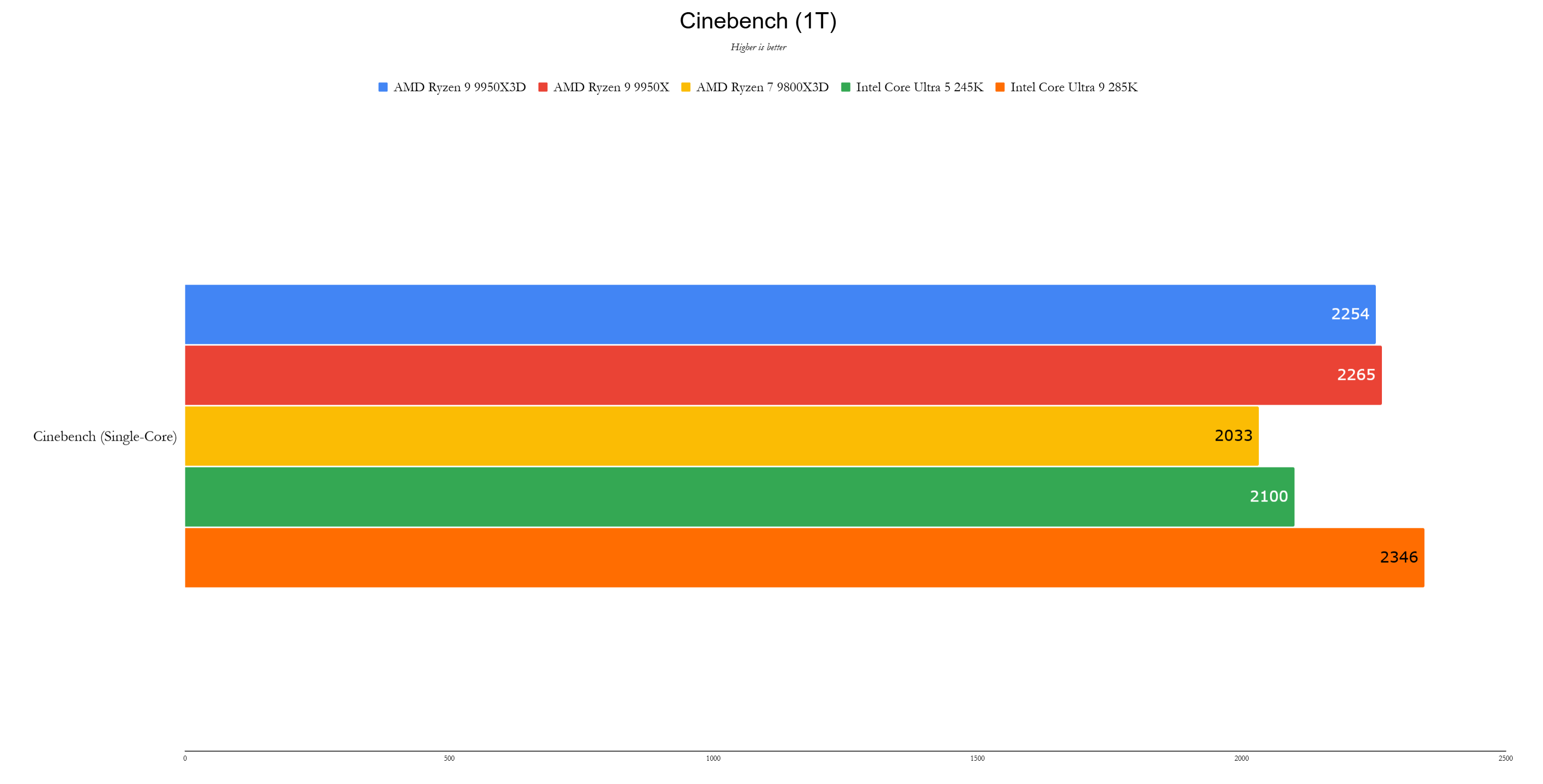
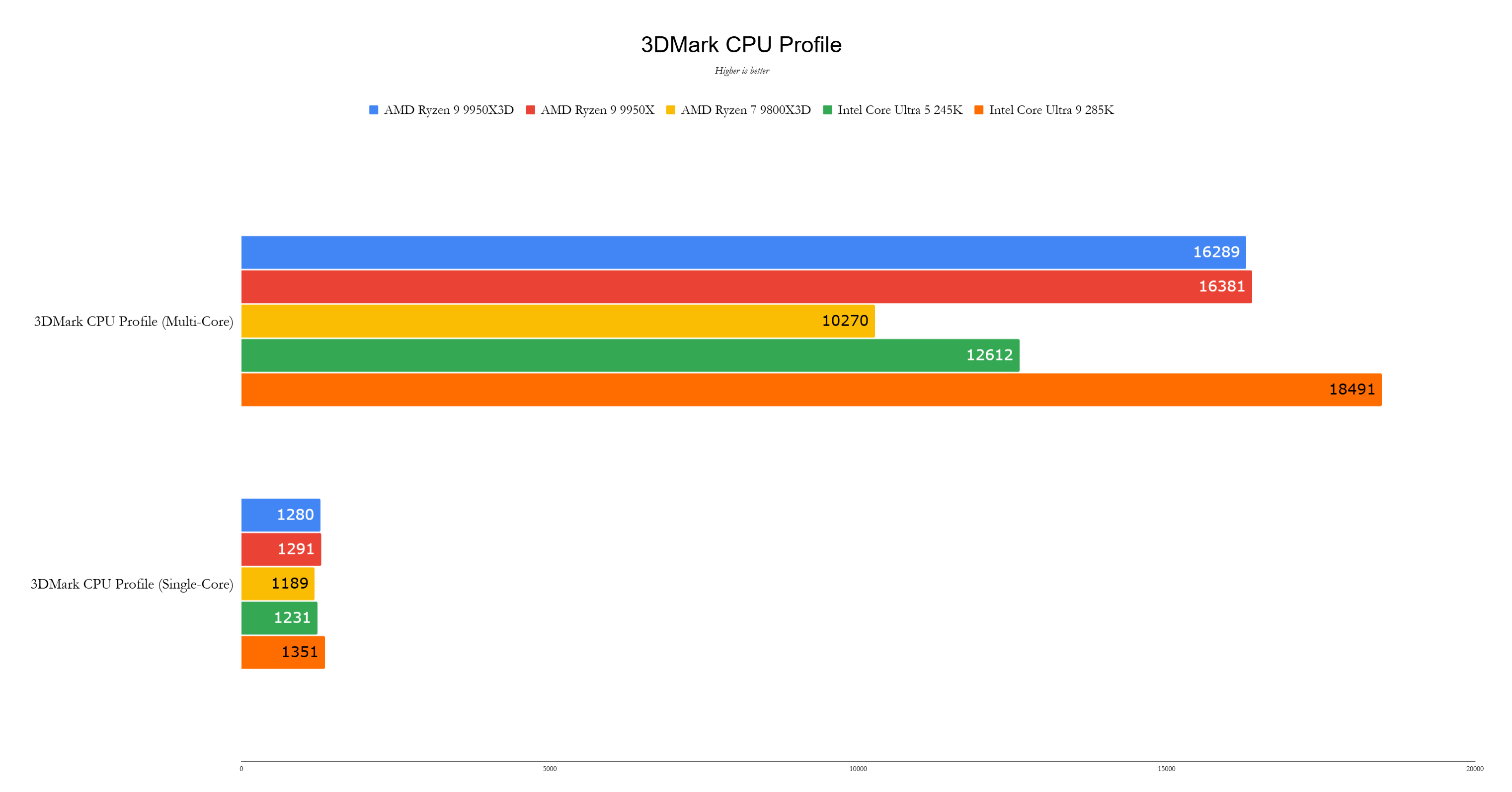
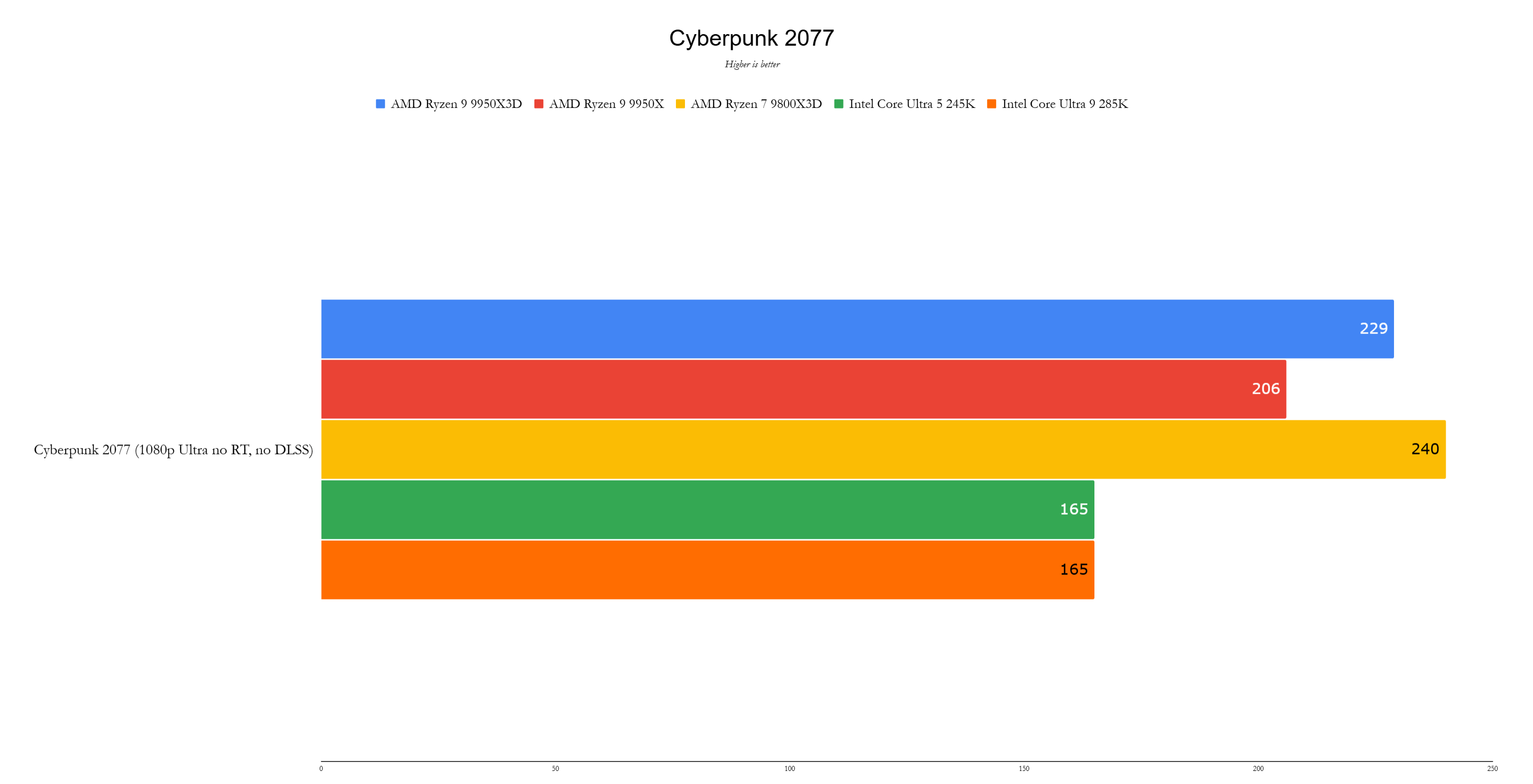

Performance
Performance tests were conducted on a consistent hardware setup, with the exception of the Ryzen 9 9950X, which was tested on an Asus ROG Crosshair X670E Hero motherboard paired with a Corsair H170i 360mm AIO cooler. While this variance might slightly affect results, all tests were run at stock settings to ensure a fair comparison.
The AMD test bench included:
- GPU: Nvidia GeForce RTX 4090
- Motherboard: Asus ROG Crosshair X670E Hero; Asus ROG Crosshair X870E Hero (for 9800X3D)
- RAM: 32GB G.Skill Trident Z5 Neo @ 6,000MHz
- SSD: 1TB PNY CS3140 Gen4x4 NVMe SSD
- CPU Cooler: Asus ROG Ryujin III 360 ARGB Extreme
A hardware issue with the cooler necessitated a change in setup for the 9950X, and retesting is planned to validate results.
The Ryzen 9 9950X3D, with its 16 cores, 32 threads, and 144MB cache, showcases exceptional power. It performs admirably in creative benchmarks, surpassing the 9800X3D where it previously lagged. The Intel test bench configuration was:
- GPU: Nvidia GeForce RTX 4090
- Motherboard: Asus ROG Maximus Z890 Hero (200S); Asus Prime Z790-A (14th-Gen)
- RAM: 32GB Corsair Vengeance DDR5 @ 6,000MHz
- SSD: PNY CS3140 1TB Gen 4 x 4 NVMe SSD
- CPU Cooler: Asus ROG Ryujin III 360 ARGB Extreme
Surprisingly, the 9950X3D excels in single-core workloads, achieving a 10% improvement over the 9800X3D in Cinebench 1T and closely competing with the Intel Core Ultra 9 285K in the 3DMark CPU Profile test. In multi-threaded tasks, it scores 40,747 points in Cinebench, slightly behind the 9950X and Intel Core Ultra 9 285K but optimized for gaming.
In gaming, the 9950X3D delivers impressive frame rates, achieving 274 fps in Total War: Warhammer 3 at 1080p with Ultra settings, outperforming both the 9800X3D and Intel Core Ultra 9 285K. However, in Cyberpunk 2077 at 1080p with the Ultra preset and ray tracing disabled, it scores 229 fps, slightly below the 9800X3D but still ahead of the Intel competitor.
Overkill?
While the AMD Ryzen 9 9950X3D is undoubtedly the most powerful gaming processor currently available, it may not be the best choice for every user. The Ryzen 7 9800X3D, priced at a more accessible $479, will suffice for most gamers. The 9950X3D is ideal for those who not only game but also engage in intensive creative applications like Photoshop and Premiere, where it offers a 15% performance boost over the 9800X3D. For a purely gaming-focused build, saving the $220 difference to invest in a better graphics card might be a wiser financial decision.
-
The meteoric rise of Marvel Rivals, NetEase's multiplayer game, has been met with both praise and legal trouble. Although the game rapidly attracted millions of players, its success has been shadowed by serious legal issues for the developer.In JanuaAuthor : Violet Dec 22,2025
-
Digimon Con 2025 has teased a new TCG announcement for fans.Strong hints suggest a mobile-related project is in development.Could this be a potential competitor to Pokémon TCG Pocket?For fans of the long-running Digimon franchise, the upcoming DigimoAuthor : Alexis Dec 21,2025
- Spring Valley Farm Game: January 2025 Redeem Codes
- WWE Superstars Join Call of Duty Warzone: Mobile Roster
- Midnight Girl is a minimalist point-and-click adventure set in Paris in the 60s, now open for pre-orders on mobile
- Mobile Legends: Bang Bang – Best Lukas Build
- "Grand Outlaws Unleashes Chaos and Crime on Android Soft Launch"
- Video Game Song Surpasses 100 Million Streams on Spotify






















